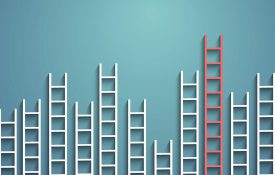-

Promising Behavioral Intervention Helps Cut Idling Car Engines
A recent behavioral intervention in the UK convinced up to 50% of drivers to switch off their idling engines, drastically reducing pollution and noise.
-
New Research From Clinical Psychological Science
Read about the latest research published in Clinical Psychological Science: The Role of PTSD, Depression, and Alcohol Misuse Symptom Severity in Linking Deployment Stressor Exposure and Post-Military Work and Family Outcomes in Male and Female Veterans Brian N. Smith, Emily C. Taverna, Annie B. Fox, Paula P. Schnurr, Rebecca A. Matteo, and Dawne Vogt The authors examined the relationship among deployment stressors, post-military work, and family quality of life in male and female veterans who had returned from military deployment in Afghanistan or Iraq within the preceding 2 years.
-
A Study Encourages You to Have Fun First and Finish Your Work Later
New York Magazine: It seems like the natural order of things: first work, then fun. If you finish your dinner, you can have dessert; if you finish your homework, you can play your video games. It’s what parents teach children, and it’s how adults typically run their own lives, too — you have to get your work done sometime, after all, and, anyway, you wouldn’t be able to enjoy your chosen leisure activity if some unfinished project was still hanging over your head. And yet the results of a recent set of experiments suggest that although people expect that they will enjoy goofing off more if they’ve finished their work first, that’s not exactly true.
-
Why Government ‘Nudges’ Motivate Good Citizen Behavior
Working Knowledge: Most governments aren’t subtle when they want citizens to do something. The United States spends close to $1 billion annually on advertising--trying to convince citizens to do everything from taking flu prevention shots to reporting unattended suitcases at the airport. But now agencies are finding that subtle “nudges” can motivate behavior much better than ads, fines, or deadlines. Nudges, or small changes to the context in which decisions are made, are the subject of a new analysis by Harvard Business School Associate Professor John Beshears and colleagues, recently published in the journal Psychological Science.
-
Glückliche Jagd nach sinnlosen Punkten (Happy Hunting for Senseless Points)
Süddeutsche Zeitung: Der Ernst des Lebens tarnt sich heute als unendlicher Spaß. Sogar bei der CDU, die kaum als vergnügungssteuerpflichtige Vereinigung gilt, setzen Strategen auf den Spieltrieb des Menschen. Per App hat die Partei im Wahlkampf Nordrhein-Westfalens Unterstützer mobilisiert, indem diese mit Punkten belohnt wurden für diverse Tätigkeiten, etwa bei Facebook posten, Freunde behelligen oder an fremden Haustüren klingeln. Die CDU-Fans wurden dadurch belohnt, dass sie ihren Status von "Lehrling" bis auf "Wahlkampf-Legende" steigern konnten - Wahlkampf als Spiel, in dem Punkte und die Jagd nach einem Highscore motivieren. ...
-

Genetic Differences Linked With Social Mobility
Data from over 6,000 twin pairs indicate that genetic differences account for nearly 50 percent of the variation in social mobility in families.

